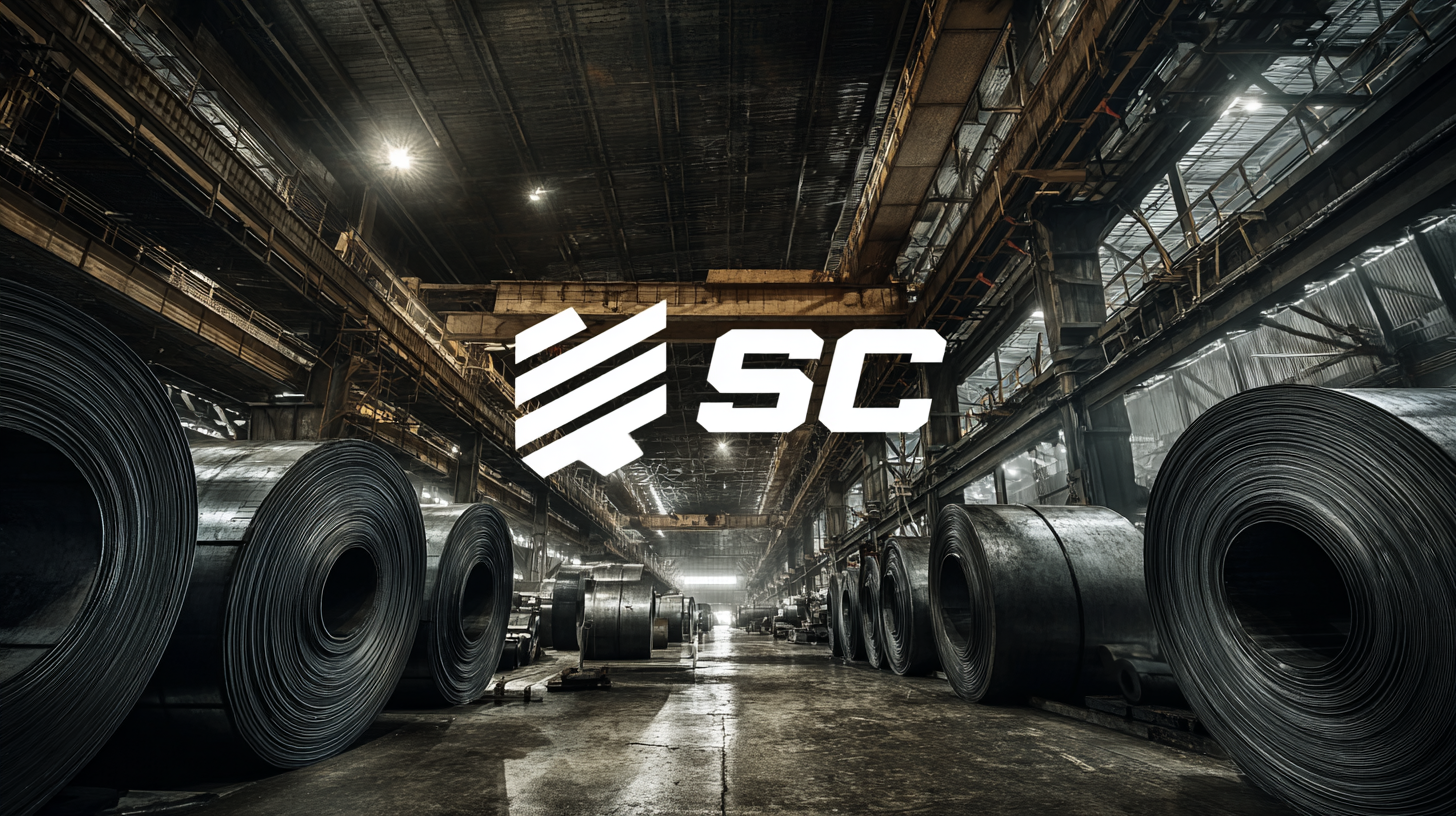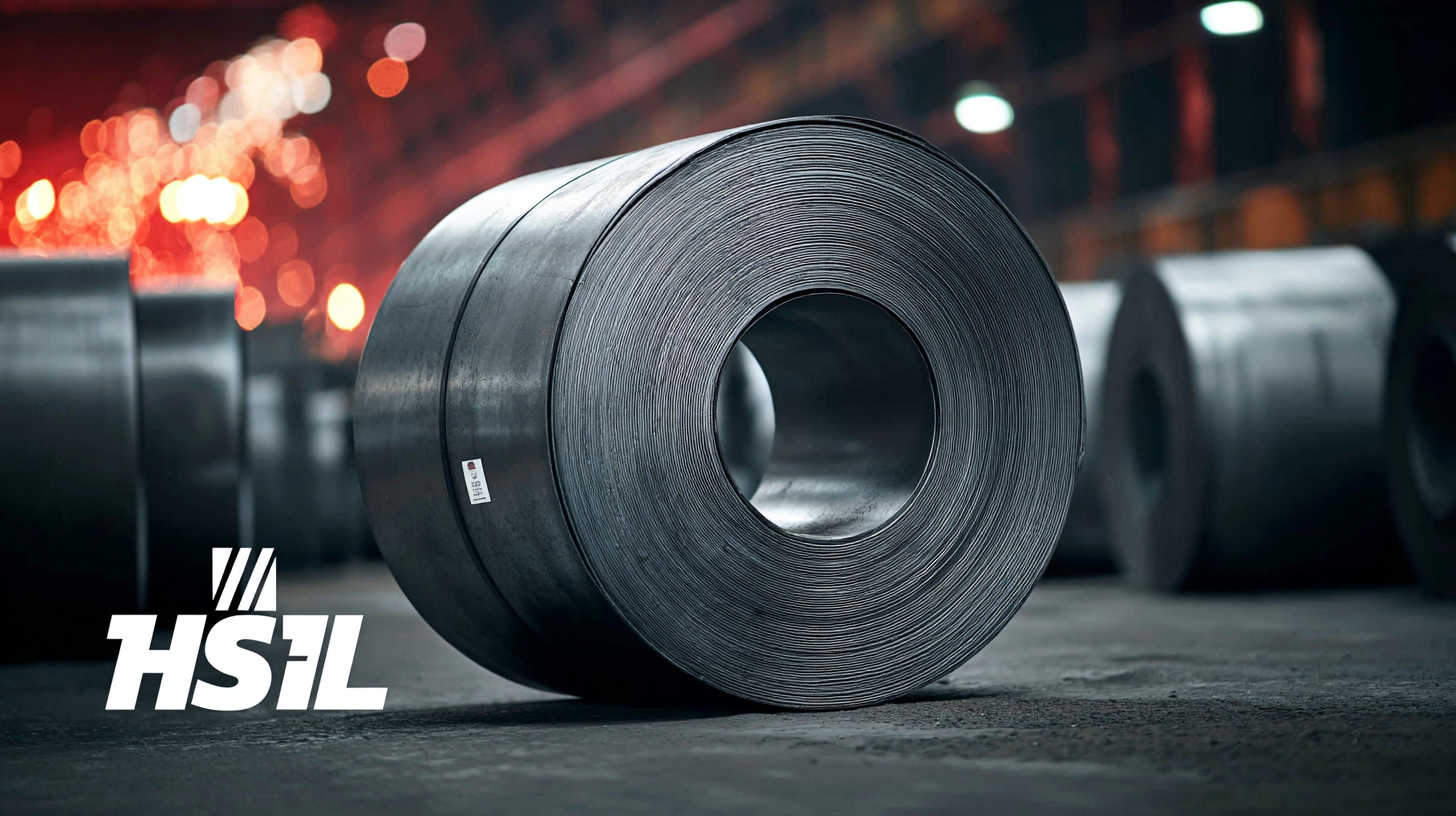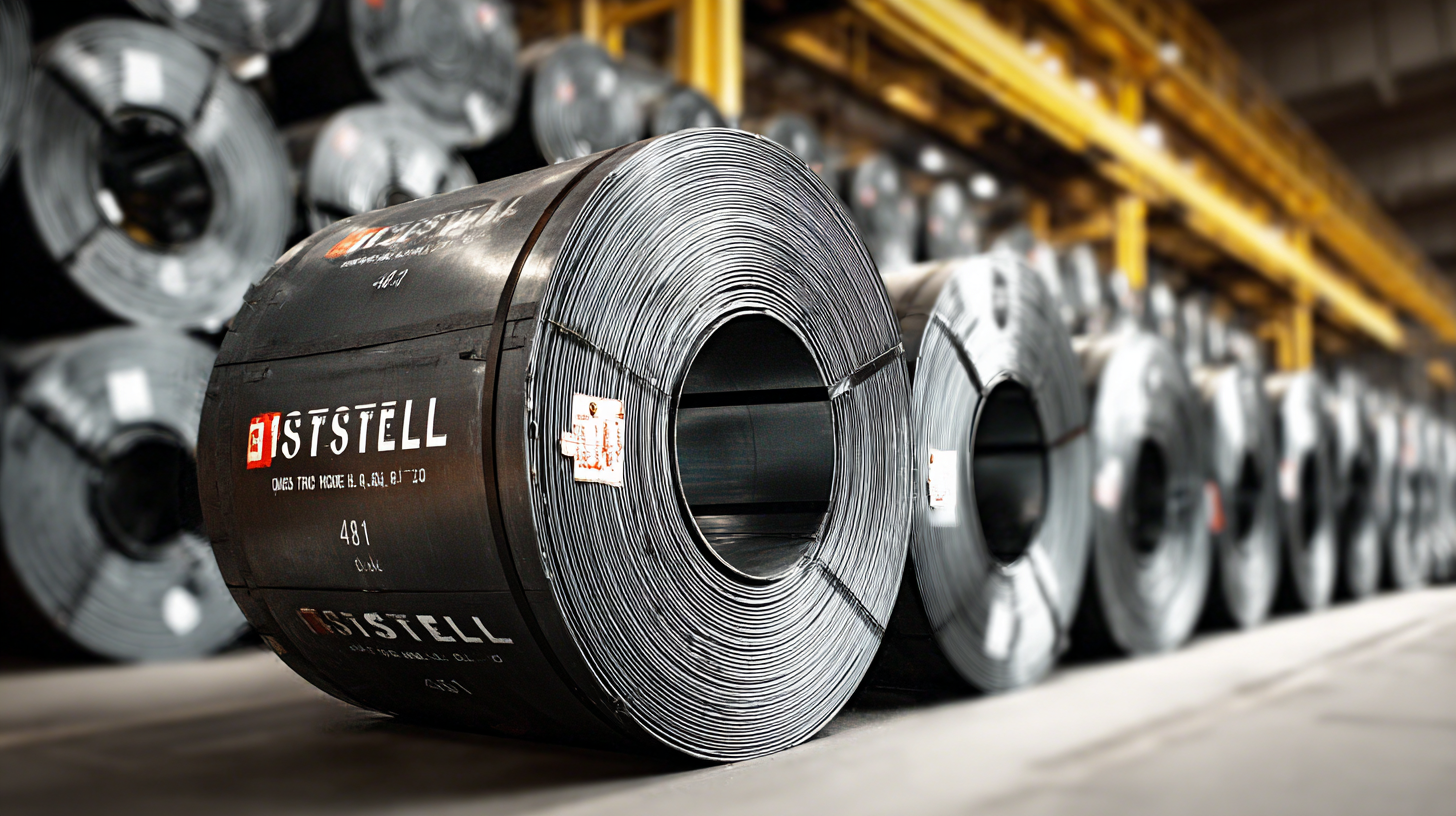In today's manufacturing landscape, the selection of materials plays a pivotal role in the success of production processes. Among these materials, High Carbon Steel Coil has gained significant attention due to its exceptional strength, durability, and versatility. Whether you are in the automotive, construction, or metalworking industry, understanding how to choose the right High Carbon Steel Coil for your specific manufacturing needs is crucial.

This blog will guide you through the top strategies for selecting the best High Carbon Steel Coil that meets your requirements, considering factors such as thickness, tensile strength, and surface quality. By making informed decisions, you can enhance product performance, reduce costs, and ultimately drive your business forward.
When selecting high carbon steel for manufacturing needs, understanding its key properties and advantages is crucial. High carbon steel is known for its exceptional hardness and strength, primarily due to its carbon content, which typically ranges from 0.6% to 1.5%. This elevated carbon level allows high carbon steel to maintain structural integrity under significant stress and wear, making it an ideal choice for applications in tools, automotive components, and machinery. Furthermore, recent advancements in additive manufacturing techniques, such as wire arc and metal-cored wire processes, have introduced ways to customize the alloy composition and microstructure of high carbon steels, enhancing their performance characteristics.
The tailored microstructures achieved through these advanced manufacturing processes result in steels that exhibit not only improved mechanical properties but also resistance to issues like cold cracking, which are common in conventional fabrication methods. For example, by adding specific alloying elements such as molybdenum or manganese during manufacturing, the mechanical properties of high carbon steel can be fine-tuned to meet specific application requirements. This means manufacturers can leverage high carbon steel's natural advantages while also mitigating potential drawbacks, thus optimizing their production processes for durability and efficiency.
As we approach 2025, manufacturing industries are increasingly recognizing the significant role high carbon steel plays in enhancing product quality and durability. Reports indicate that the global high carbon steel market is projected to grow at a compound annual growth rate (CAGR) of 4.5% over the next five years, driven by demand in automotive and construction sectors. The material's superior hardness and wear resistance make it an essential choice for components that require high strength and resilience.
When selecting high carbon steel for manufacturing, it's crucial to consider specific needs such as tensile strength and corrosion resistance. Quality varies significantly, so manufacturers should consult certified material reports and focus on suppliers who adhere to industry standards like ISO 9001.
Tip: Always request samples before committing to large orders to ensure the material meets your specifications. Additionally, consider partnering with suppliers who offer value-added services like custom cutting and surface treatment to enhance the usability of the high carbon steel coils.
The rising importance of high carbon steel is also influenced by sustainability targets, as industries seek materials that contribute to longer lifecycle products. By 2025, it is anticipated that over 30% of manufacturing firms will prioritize eco-friendly materials, highlighting the need for innovation in high carbon steel applications.
Tip: Stay updated on the latest industry trends and research to align your sourcing strategies with emerging sustainability practices.
When selecting high carbon steel coils for manufacturing purposes, several key qualities are essential to ensure optimal performance. First and foremost, the carbon content plays a critical role in determining the strength and hardness of the steel. Typically, high carbon steel contains between 0.55% to 1.5% carbon, which contributes to its excellent wear resistance and toughness. Understanding the specific requirements of your project will help you identify the appropriate carbon level that balances strength with ductility.
Another important quality to consider is the coil's microstructure, which affects its mechanical properties. High carbon steel can be produced in various forms such as tempered, quenched, or normalized. Each treatment process enhances specific characteristics, such as toughness, tensile strength, or yield strength. Additionally, pay attention to the coil's surface finish and dimensional tolerances, as these factors directly impact the steel's performance in applications, from automotive parts to industrial machinery. By focusing on these critical attributes, manufacturers can select the best high carbon steel coils that meet their operational needs effectively.
| Quality Attribute | Description | Importance Level |
|---|---|---|
| Carbon Content | Higher carbon content generally increases hardness and strength. | High |
| Tensile Strength | The resistance of steel to being pulled apart; crucial for structural applications. | Very High |
| Ductility | The ability to deform under tensile stress; important for shaping processes. | Medium |
| Hardness | Resistance to indentation and scratches; affects wear resistance. | High |
| Surface Finish | Quality of the steel surface; impacts aesthetic and functional performance. | Medium |
| Workability | Ease of machining and fabrication; vital for manufacturing processes. | High |
When it comes to selecting high carbon steel coils for your manufacturing needs, evaluating various brands becomes essential. In 2025, several brands stand out due to their quality, consistency, and reputation within the industry. Leading names in the market include Brand A, known for its superior tensile strength, and Brand B, which offers an exceptional range of thickness options. Both brands are poised to meet diverse manufacturing requirements, making them top contenders for your projects.

When choosing the right brand, consider these essential tips: First, assess the specific application for your high carbon steel coils. Different brands offer varying levels of hardness and ductility, so understanding how the steel will be used is crucial. Second, examine the supplier's quality assurance processes. A reputable brand should provide certifications confirming the steel’s properties and performance metrics. Lastly, don’t overlook customer reviews and industry feedback. Engaging with other manufacturers who have used these brands can provide valuable insights into durability and overall satisfaction.
Ultimately, conducting thorough research on high carbon steel brands will enable you to make an informed decision that aligns with your production goals, ensuring the right material is selected for optimal results.
When budgeting for high carbon steel coils in your manufacturing process, it's essential to assess both direct and indirect costs associated with these materials. High carbon steel is known for its strength and durability, making it a popular choice in industries ranging from automotive to construction. However, while the upfront cost of the coils may be lower than other materials, factors such as processing costs, equipment wear and tear, and potential waste should be carefully considered. A thorough cost analysis will help ensure that you do not overlook any hidden expenses that could impact your bottom line.
Additionally, take into account the price fluctuations that can occur in the steel market due to various factors, such as supply chain disruptions or changes in demand. It’s wise to establish a flexible budget that can adapt to these variations. Partnering with suppliers who offer price stability agreements or volume discounts can also be beneficial. By recognizing these financial considerations upfront, manufacturers can make more informed decisions, optimizing their operations while managing costs effectively in the often volatile landscape of high carbon steel procurement.






